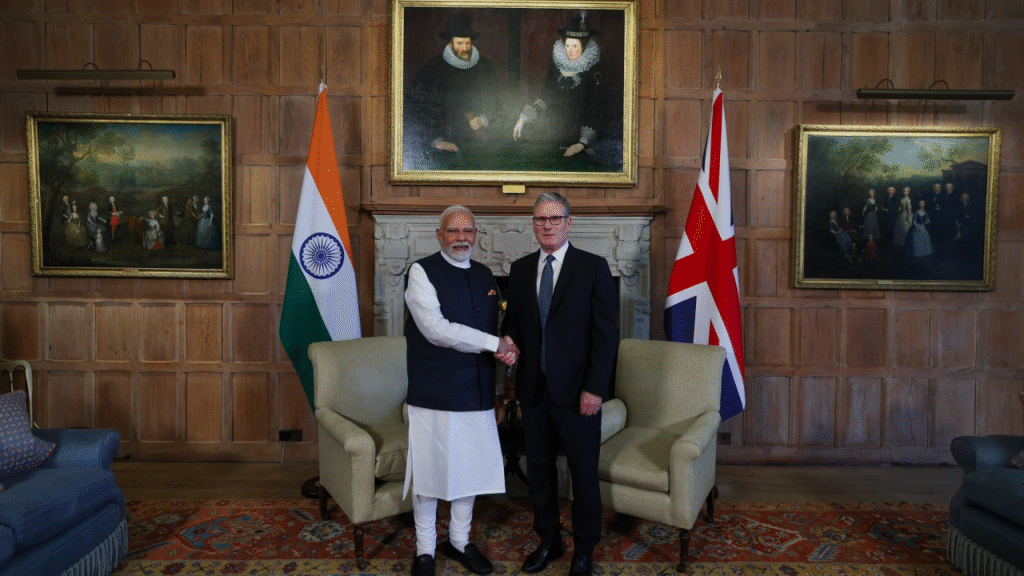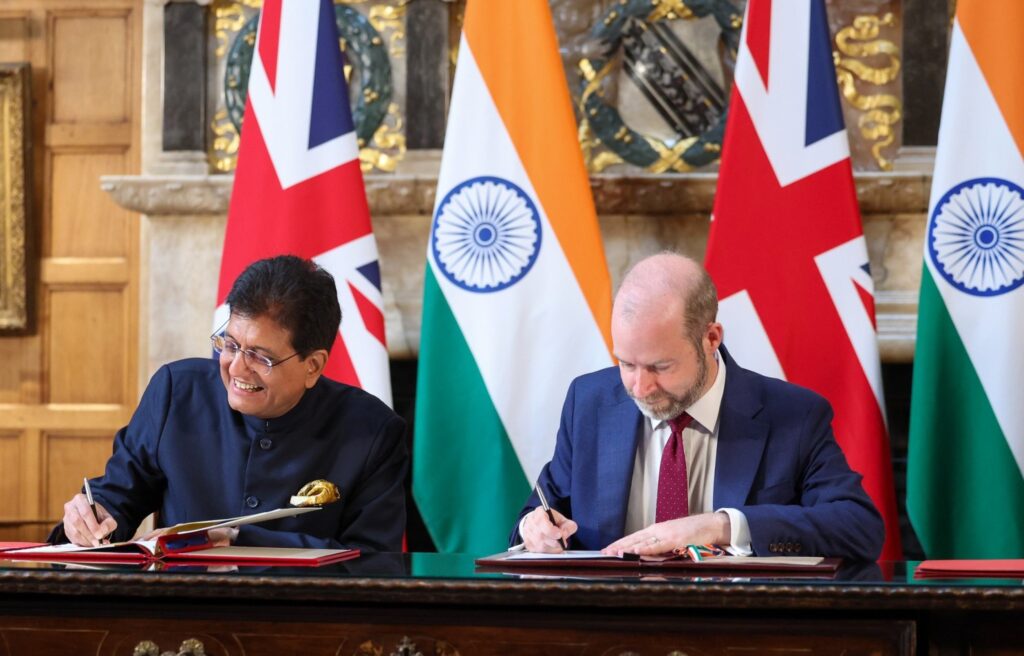
India and the UK have signed a historic trade and technology partnership, launching Vision 2035 and sealing the Comprehensive Economic and Trade Agreement to deepen economic, defence, and innovation ties for the next decade.
Prime Minister Shri Narendra Modi concluded his official visit to the United Kingdom on July 23-24, where he held talks with UK Prime Minister Rt. Hon. Sir Keir Starmer at Chequers, the UK Prime Minister’s country residence. The two leaders unveiled a series of landmark agreements that will redefine the future of the India-UK partnership.
At the centre of the visit was the signing of the India-UK Comprehensive Economic and Trade Agreement (CETA) by Commerce and Industry Minister Shri Piyush Goyal and UK Secretary of State for Business and Trade Jonathan Reynolds, in the presence of the two Prime Ministers. The agreement provides zero-duty access on 99% of tariff lines, creating vast opportunities for labour-intensive sectors like textiles, leather, footwear, marine products, gems and jewellery. It also includes ambitious commitments in services such as IT, financial services, business consulting, and education.

A key highlight is the Double Contribution Convention (DCC), which exempts Indian professionals and their employers from UK social security contributions for up to three years. This measure will boost competitiveness, reduce business costs, and enhance mobility for Indian professionals including chefs, yoga instructors, musicians, engineers, and architects.
The two leaders also adopted the India-UK Vision 2035, a roadmap to guide bilateral relations for the next decade. Covering economy, education, defence, technology, climate, and people-to-people ties, the Vision 2035 sets ambitious targets for cooperation. It includes deeper trade integration, expanded educational links with UK universities opening campuses in India, joint research in advanced technologies, clean energy partnerships, and stronger collaboration in defence and security, particularly in the Indo-Pacific region.
Marking one year of the Technology Security Initiative (TSI), the two sides celebrated achievements in telecoms, AI, biotechnology, and critical minerals. These include the launch of joint 5G/6G testbed development, AI research programmes, and a critical minerals supply chain observatory. Looking ahead, India and the UK will establish a Joint Centre for AI, a Connectivity Innovation Centre, and a Biotechnology Accelerator, while expanding cooperation in semiconductors, quantum, advanced materials, and health technology.
On defence, a Defence Industrial Roadmap was finalized to promote co-design, co-development, and co-production of military equipment. The partnership will expand joint exercises, technology development, and maritime security cooperation. Both leaders strongly condemned terrorism and extremism, with the UK reiterating its solidarity with India after the recent Pahalgam terror attack.
Acknowledging the contributions of the Indian diaspora in the UK, both sides reaffirmed its role as a “living bridge” between the two nations. They also exchanged views on global and regional challenges, including the Indo-Pacific, West Asia, and the Russia-Ukraine conflict.
Prime Minister Modi thanked Prime Minister Starmer for his hospitality and invited him to visit India soon, as both leaders committed to driving forward this transformative partnership for growth, innovation, and security.
Source – Ministry of External Affairs, Government of India (MEA India)
